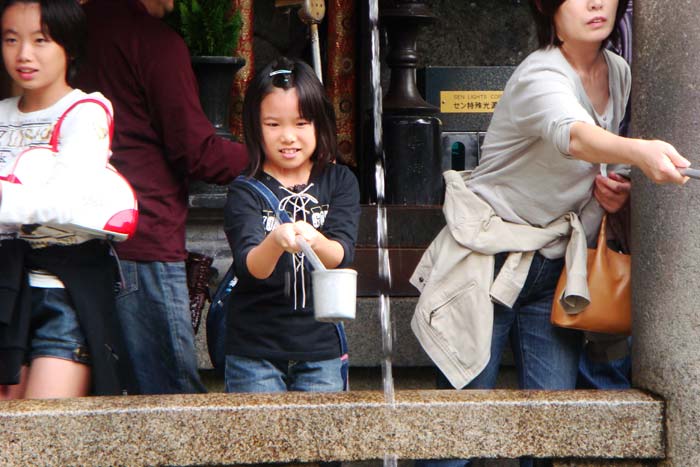
Fitting a New Suit
by Madeline Ashby

“Relax,” Kyon said. “I used to be a rental sister.”
Dai wanted to comment that “Kyon” was traditionally a boy’s name, but held back. Kyon was his new tailor, and he had no desire to alienate her.
Kyon navigated his small, tubular room with ease. She squatted behind him, her fingers deftly sussing out the wires in his suit. Her features marked her as Korean. He wondered if she carried a stunswitch -- he’d heard that tailors did that to protect themselves from men like himself.
“Running a little hot, are we?” she asked. Her voice said that she expected no answer. Most tailors didn’t, and a former rental sister would expect one even less. Dai was hikikomori -- “withdrawn” -- and he hadn’t ventured outside his capsule in the past three years.
“And no wonder,” Kyon continued. “You’re too big for this suit. You need a new one.”
With sustained effort, Dai turned his neck to look at his tailor. Her hair was long at the front and short in the back, with purple low-lights. She wore the deep blue coverall with the little needle-and-screwdriver patch signifying certified tailors. Misaligned teeth crowded her jaw.
“Don’t look at me that way,” she said, and he knew for certain that her bit about being a rental sister wasn’t a lie. All rental sisters took that tone with people like him -- hikikomori -- that finger-wagging, cajoling, girls-know-what’s-best tone that encouraged the opening of doors or taking of showers.
“I’m sorry,” she was saying. “I think I caught a cold the last time I played pachinko, and my manners aren’t what they should be. But you’re just too big. And that’s something to be proud of. Your muscle mass is greater. That means you can do more work. If you get a better suit, they can take more accurate readings, and your incentives will increase.”
Dai worked on framing the words. I’ve used it for eighteen months now. Don’t make me change it. “This suit is fine.”
Resolute, the new tailor shook her head. Her hair swung across her face. “No way. You’re too big.” She zipped his spinal panel shut and gestured for him to stand. “Come on, get up. It’s time for new measurements.”
More slowly than was strictly necessary, Dai lifted himself from the floor, and spread his legs and arms.
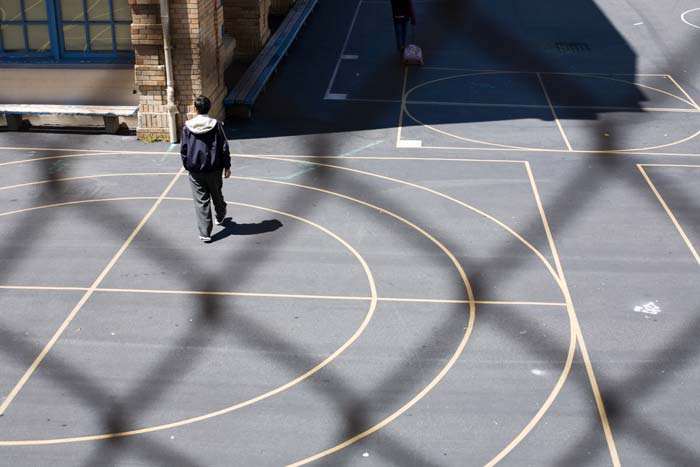
When asked by therapists specializing in his condition when exactly he had become hikikomori, Dai frequently answered that it was when the Self Defense Force returned his little sister to him in a small box.
Aoi was one of those eternally-helpful girls. Even before breaking off, Dai rarely left his apartment. He made few friends. Aoi was entirely different in this regard, but she made certain to drop by and prepare meals or regale him with stories of her last date’s appalling stupidity. Not once did she attempt to introduce him to one of her girlfriends, or pry him loose from his routine. In fact, she was the complete opposite of a paid rental sister -- she didn’t nag, she didn’t “lovingly” tease or make fun of him. She was simply there, and that was enough. Dai liked this about them. Neither felt the need to entertain the other.
“But you’re not a nationalist,” he said, when she mentioned joining the Force.
“But they need my help,” she said, and that was that.
In truth, it was not the sight of her humble wooden urn that convinced him to retreat. Rather, it was an image he’d seen online shortly afterward. Someone had smuggled the photo from a base up North where the fighting never stopped. The plane’s cargo hold yawned open. Inside were crates with serial numbers. They stood stacked one upon another. At the bottom read a caption: “Crates containing urns, bound for Japan.”
His sister’s ashes had come from a numbered crate. Someone had unpacked her with a crowbar. Those crates were full of what once had been real individuals. Their thoughts were just as self-centered as the ones floating through Dai’s head. There was nothing special about Dai’s transient, useless waste of a life. There never would be.
This thought alone was enough to make Dai want to shrink down to the size he felt within. He wanted to be silent and invisible. Knowing that as a human being he consumed food and energy and time while deserving none of it whatsoever left him feeling dirty and shameful.
In fact, the most attractive part of becoming a capsule-dweller was earning his keep. Wearing the heavysuit meant he worked for his electricity and water. It meant his life now revolved around the treadpad and sets of reps. The more power he generated through exercise, the more that could be shared with others. Or so he’d been told. It sounded strange when he first heard of the scheme, but with the war there were so many like him. There were so many willing to wear the suit. Alone, Dai generated only a small amount of power. But together, the army of hikikomori heated homes.
For the first time, Dai felt part of something. It helped that he didn’t have to see anyone except his tailor who, like all in her profession, performed the service on-site.
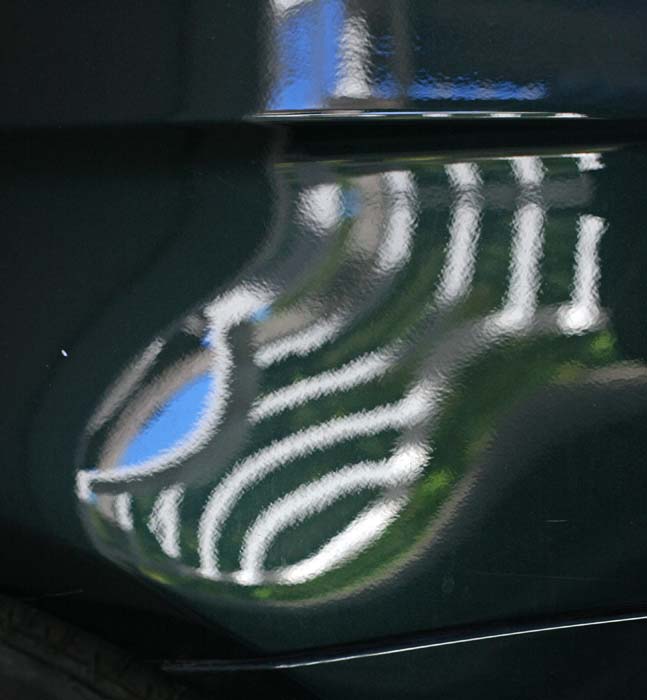
“There, isn’t that better?”
Dai shifted inside his new suit. Unlike his previous one, this felt like a piece of clothing and not a second skin. He didn’t like it. “Loose.”
Kyon rolled her eyes. “You’ll get used to it.” Stepping around the treadpad in the floor, Kyon found his refrigerator. She opened it without asking. “You need anything? More protein? More carbs?”
Dai took a deep breath. “There’s a chip.”
Kyon frowned. “You want chips?”
He shook his head. “There’s a chip inside the fridge.” Kyon looked from the fridge full of protein drinks and noodle cartons to him. “It calculates what I need, and tells Support Services.”
Kyon peeked inside again. “So you can’t choose?”
“They choose what’s best.”
“Interesting.” From her tone, Dai guessed that Kyon’s image of him now involved words like “trapped” and “Kafkaesque.”
“It’s very healthy.”
“So you don’t ever want something from outside?”
Dai thought briefly of fried pork cutlet smothered in curry gravy. “No.”
Kyon shrugged. The boxy shoulders of her coverall rose and fell. “Suit yourself.” Her hand rose to cover her mouth. “That was a bad pun,” she said through her fingers. “I’m sorry.”
Dai sat on the floor. “I’d like to work out now.”
Kyon nodded. “Right. Sure thing. Let me know if there are any kinks.” She crossed to the door. She opened it before pulling on her building slippers. “And hey, wash that new suit, huh? The other one was, like, stiff.”
Dai pretended not to hear. Instead, he began the first of three thousand crunches.
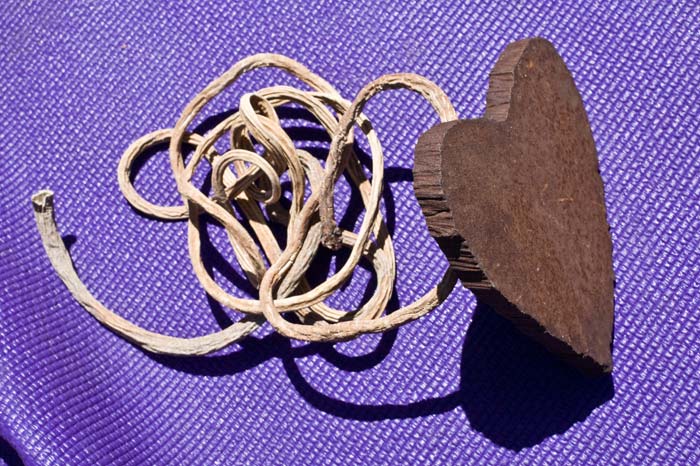
Of course, there were kinks. Two days after the new suit arrived, someone from Observation called him.
“Dai, are you not feeling well?”
Dai frowned, and thumbed the console beside his door. “I’m fine.”
“Our readings say that you’ve been a little lethargic.”
“I’ve been doing my usual routine.”
In the long pause before the observer spoke again, Dai heard a faint report about a raid on a Chongryon pachinko parlor thought to be harboring a Northern terrorist sleeper cell. “I’m sorry, Dai. I don’t mean to imply that you have been lazy. It’s all right to take a little rest now and then.”
“That’s not what I mean,” Dai said. “My suit is new. It’s loose.” It’s the problem, not me.
“We can send your tailor up very soon, Dai. Would that be all right?”
“Fine.” He left the conversation before the observer could say anything more, and waited.
Kyon arrived smelling of kimchi. With the war, Korean food was newly in vogue. At least the food shows said so. “I was just eating lunch when they told me about your suit,” she said. She covered her mouth. “I’m sorry I didn’t have time to clean my teeth.”
She squatted on the floor next to the treadpad. She patted the floor. “Come on, sit.” Dai watched her unzip her repair kit from her coverall. “We just need to fit you, get some good readings, and you can earn something new.” She pointed at the wall-dominating media display with a screwdriver. Currently, it featured a live feed of the Northwest Passage. It was endless blue, not an ice floe in sight, and Dai liked watching the ships go by. “You earned that, right?”
Dai nodded, and knelt in front of her. He felt her unseal the spinal panel. It was a crawly, exposed feeling. “You were right, Dai,” Kyon said. “You’re loose. You’ve got no friction. No wonder they can’t get a good read on you.”
“That’s what I said.”
“We just need to tighten you up. This happens all the time with the new suits. The sensors are cheap. The old jenny sensors, though. They were great.”
“We had a jenny,” Dai said, thinking of the car his family had used to make weekend trips.
“Yeah? What’d you route her through?”
“The garage?”
“No, no. How’d you offset? How’d you shave the electric bill?”
“Oh. The battery was rigged to the kitchen floor. My mother said we generated so much charge as teenagers just standing in front of the fridge...”
Kyon laughed. “Yeah, I bet the meter barely moved. No wonder you’re so good at wearing the suit. You’re used to kinetic power.” She fiddled with something near his neck. “Okay, tell me if this is too tight. You ready?”
Dai nodded. The suit instantly tightened, and he exhaled carefully. Blood throbbed in his fingertips. “It’s too tight.”
“I can fix that.” The suit gradually slackened. Then it sloughed off entirely in one quick sigh, and Dai grabbed at it to keep it on his body.
“Hey!”
“I didn’t do it on purpose! There’s a faulty connection somewhere. There’s more wrong here than I thought.” Kyon withdrew another tool. “Lucky for you, my dad built the first jenny in our town, and I helped him do it, so I know just how to tailor you.”
“Generators and suits are different.”
Kyon made a “feh” noise. “Please. I’ve got this.” The suit tightened considerably, but Dai’s fingers no longer throbbed. “See?”
Dai turned. “He really made the first jenny in your town?”
Kyon grinned. “Downloaded, printed, and built, all himself. With my help, of course.”
“Where did he route the sensors?”
Kyon nodded at the treadpad. “Treadmills,” she said. “He was pretty big on physical fitness.” She pressed something inside the panel. “One more test. Can you stand up?”
Dai stood, and she came with him. She tilted her head, and looked him over from head to foot. “You’ve got a pretty nice body there, Dai.”
A rapid beeping sounded between his shoulder blades. “There’s the reaction I wanted,” Kyon said. “You’re nice and tight now.”

Later on, Dai realized this was the longest conversation he’d had with anyone who was not a therapist in about three years. After his first year in the capsule, his old friends simply stopped calling. The spartan space frightened them. Back then, the only personal detail was his sister’s urn. Dai had sweat inside the suit for every accoutrement: the screen, the speakers, his Internet connection, the hard drives. He was among the hardest workers in his building, if Support Service’s comments were to be trusted. Next on the incentives menu were big-ticket items like a mood-sensing array that could deploy chroma-therapy from the ceiling or aroma-therapy from the floor.
Instead of subtracting from his total by purchasing incentives, he watched food channels. Cooking shows reminded him of what was good in the world outside. He now knew more about food preparation than he ever had before leaving society, despite the fact that the most toothsome foods he’d eaten in the last three years were the mandatory vegetable servings that Support Services said assisted digestion.
He was watching a segment on how to spruce up children’s lunches when an advertisement for a special on Korean partisans cut into one of his favorite programs, and he put two and two together. Music swelled and a fuzzed-out face said: “He told us that our duty was to discover all traitors to the Glorious Leader among the pre-nuclear North Korean immigrant population.” The announcer promised details of Chongryon pachinko parlor profits funding terrorism, and how the Japanese government fought back by funding Northern partisans disloyal to the regime. The announcer prattled on, but Dai had stopped listening. In his mind, ideas gently coagulated into one recognizable form like the stews he hadn’t eaten in so long.
“Kyon,” Dai said.
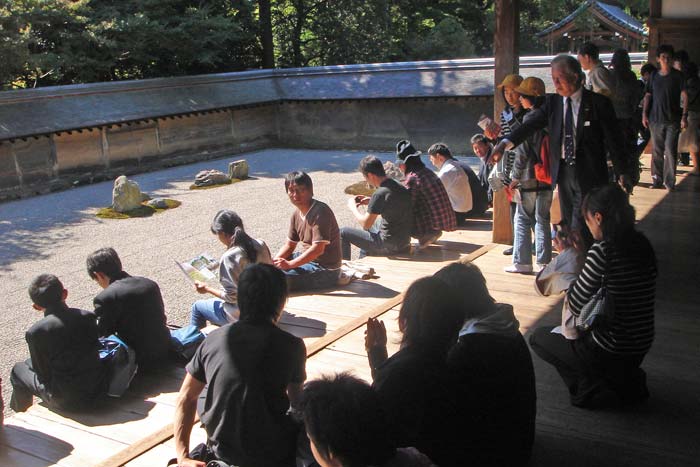
The next day he complained of his suit loosening again, and they sent Kyon. “How long have you been in Japan?” he asked, before her shoes were off.
Kyon slid the door shut, and placed one shoe beside the other. “I left Seoul three years ago.”
“Before that,” Dai said. “When did you head south?”
Kyon’s eyes rose. “Your suit looks tight enough.”
“Answer me. You’re not from Seoul.”
Her lip twisted. “What they say about hikikomori and paranoia is true, I see.”
Dai rolled up from the floor and stood over her. Her throat bobbed up and down, but she remained silent. Standing this close, Dai was suddenly aware that he was much stronger than Kyon. Years in a heavysuit had given him much more muscle mass. If he wanted to, he could really hurt her. He wondered again if that rumor about tailors carrying stunswitches was true.
“Support Services said you aren’t violent,” Kyon said in a voice he strained to hear. “Are you going to hit me, Dai?”
He shook his head and returned to the floor. A moment later, Kyon squatted down beside him. On the screen, a woman in an apron filled daifuku buns with jam. Dai quickly changed the channel and soon the Northwest Passage feed filled the dim capsule with blue light.
“I could leave you right now, Dai. I could go downstairs and tell them your paranoia has escalated. They’d send a therapist.”
“I have a lot of time to think,” Dai said. A barge appeared on the left side of his screen. He watched it, a tiny black thing making its slow, steady journey in that expanse of blue. “I’ve put some thoughts together.” He turned. Kyon’s hair hung so that it hid her eyes. “You’re very small. And you have bad teeth. I think that you didn’t get to eat very much growing up. I think your father the inventor was probably fabbing crossbow parts so you could hunt squirrels.”
“You’ve got a pretty active imagination.”
“Are you really a certified tailor? I have a legal right to see your certificate.”
“I have the same level of certification as the person who installed your television.” She nodded at the door. “And there’s a copy of my certificate downstairs, any time you feel like taking a walk.”
Dai watched the barge. “You’re never going to tell me, are you?”
A gentle, sad smile appeared on her face and for a moment her expression so reminded him of Aoi that his stomach felt full of ice water. “Dai,” she said. She reached, but didn’t touch him. Her fingers splayed over the tatami. “Do you really think you’re the first man to have thought this about me? I’m Korean. We’re in a war. Every hikikomori in this building thinks I’m a loyalist Chongryon member of a Northern sleeper cell.”
You’re not special, he thought to himself. You never will be.
Kyon rose. She tugged at the legs of her coverall and ran fingers through her hair. Dai sensed these movements without really seeing them. She made to leave, then paused at the hard drives. “What’s in that box?” she asked, pointing the small wooden rectangle atop all the electronics.
“My sister’s ashes.” Dai was careful not to look at her. “She died up North.”
“I’m sorry,” Kyon said. She seemed to think for a moment, then moved forward and slipped on her shoes. She left without saying goodbye. After the door closed, Dai thought of the picture they had made: a man on his knees, and a woman on her feet.

He didn’t see her again for three months. When she arrived she dripped rain inside his doorway, and wore a cap mashed down across her hair. She also carried a lot of food.
“I had a sudden attack of conscience,” she said, and gestured at the bag. “I thought I shouldn’t have said such mean things to someone who lost his sister in the war. This is my way of apologizing.”
“Your hair is different,” Dai said.
Kyon pulled at the strands. “It kept getting in my way. It had to go.”
Unable to restrain himself further, Dai peered into the bag. The smells promised textures and flavors he hadn’t experienced in years. The activation of his salivary glands stung the back of his throat. “I’m not supposed to eat anything but my 40-30-30,” he said, referencing the protein-carbs-fats ratio that Support Services provided.
“You can work it off tomorrow.”
“You’ll be in a lot of trouble for giving this to me.”
“That’s what I meant to talk to you about,” Kyon said, and he watched her tap lightly on her tailor’s patch before he fell into a boneless puddle on the floor. The stunswitch, he thought. Kyon squatted down beside him. Her toenails were blue with pink cherry blossoms. “I sort of need your help.”
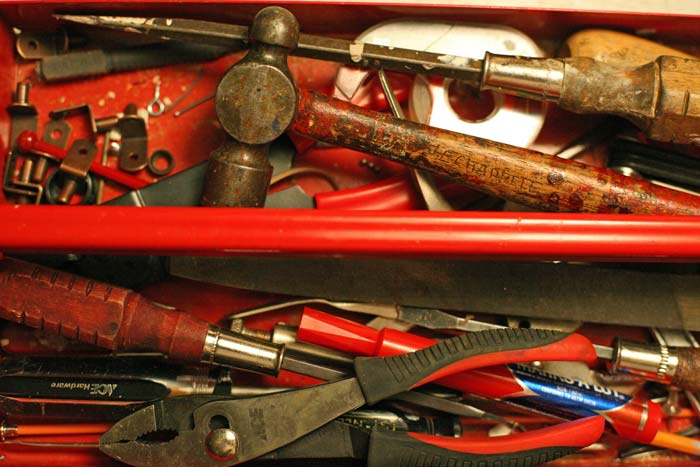
Kyon waited for the broth to cool before feeding him. While doing so, she also explained: Dai had been right. She was an illegal immigrant. For an exorbitant fee, a group of Southerners smuggled her across the border. After gathering sufficient funds, she left Seoul in the hopes of putting even more distance between herself and the Glorious Leader’s armies. They wanted her on charges related to being a partisan.
“You know what happens to prisoners up North, Dai? Soldiers tie them to stakes and use them for bayonet practice. But now I’ve been made -- by a goddamn Chongryon pachinko parlor, no less. Those crazy old loyalist immigrants make it their business to hunt down people like me and ship us back. So I’m going away. There’s a man who’s taking me. I just need a place to stay until he arrives.”
Dai’s arms and legs felt disconnected from his body. When his lips and voice started working, he said: “Observation will know you stunned me.”
“I edited the records from your suit while you slept,” Kyon said, and popped a dumpling in her mouth. She spoke with her mouth full. “According to them, you just had a bad dream.”
Dai frowned. “They’ll read my inactivity.”
She shook her head. “You could be washing the suit. Once you take it off, it all reads the same.” She gave him a look that said he was terribly naïve. “As long as you fill quota, they don’t care.” She spooned out some fried rice, then dipped it into a steaming bowl of something suspiciously red. “Open wide. Good boy.”
The soup made his eyes water and his stomach burn. His tongue vaguely remembered spicy food, but the memory was distant. “It’s like me feeding you this way,” Kyon said, dipping the spoon again. “That’s you. You’re being fed something by these people, Dai. They’re not out to help you. They just want to keep you here.”
Sweat broke out under his suit. Without the ability to really move, the suit seemed twice as heavy. “I help generate power. I provide a service.”
“Dai. Come on. Do you know how much power that display of yours sucks up?” Kyon nodded at the screen. Dai couldn’t see it precisely, but the rhythm of motion in his peripheral vision suggested late-night softcore. “There’s no way all of you capsule-dwellers could ever generate enough power to offset any significant usage. This whole thing is a public relations scam. It’s green energy plus a way to deal with the hikikomori problem. It’s a win-win.”
Dai rolled his eyes toward her. “I hope they execute you for treason up North.”
Kyon picked up a dumpling with her chopsticks and swirled it in something that smelled of fruit and vinegar. “Eat,” she said, and smeared the dumpling across his mouth until he opened it.

Later, he vomited.
“It’s the meat,” Kyon said. She squatted behind him as he crouched over the toilet. “I forgot. Your stomach only knows isolates and caseinates and phyto-protein. You haven’t eaten real food in a while.”
“I hate you,” Dai said, and gagged.
“I’m sorry.” Kyon reached to give him a hug, and Dai’s elbow shot out. Her gasp said she had caught it in the solar plexus. She tumbled backward into the shower. A tiny smear of blood followed the path of her head as she sank down the tile. Her mouth opened mute and fish-like. She pointed at her chest; mimed that she couldn’t breathe. Surprise and panic and shame simmered up along Dai’s chest and neck. His ears burned. Kyon was right -- he didn’t know his own strength. He almost reached down to help her, but stopped.
“I’m calling Support Services.”
He turned for the door, but Kyon grabbed his ankle. She seemed to strain for air then reached for the stunswitch. Dai batted her hand away, and stood her up. Her breath returned with a groan. “You attacked me.”
“You attacked me first.”
Kyon shook her head. She swallowed and coughed deeply. “No. You don’t get it. You attacked me. What do you think will happen when they find out?”
“You stunned me! Then you hacked my suit! And you’re illegal!”
“Dai. Listen. If you tell them, they’ll send me away. But they’ll also move you to a suicide-proof capsule. You’ll need Support Services to unplug every goddamn outlet in the place. And they’ll probably give you some nice prescriptions, too. Is that what you want?” She laid a hand on his arm. “All I need is a place to stay.”
Instead of answering, Dai let his hand fall to the tailor’s badge on her coverall. He gathered himself for a moment before twisting the badge and yanking it away. It ripped free in his hand, trailing thread and wires. “Now you can’t stun me again,” he said. He looked at the wall behind her. “You’re bleeding. Clean up.”
Kyon stayed in the bathroom for a while. The shower remained on. For the first time in a year and a half, Dai chose to watch coverage of the war. After his relatively-innocuous media diet of softcore, cooking shows, and the Northwest Passage, the slick graphics and alarming headlines made him feel a little strange, as though he had been buttonholed by a septic tank repairman whose idea of conversation, though important, remained deeply unpleasant.
“Pretty fucked up, isn’t it?” Kyon said. She wore only a towel. Dai watched a bead of water trail from her calf downward.
“Tell me why you left the partisans.”
Her wet hair accentuated the movement of her head as her glance flicked to his sister’s urn. “My father died.”
“Without him around, you had no reason to stay?”
She shrugged. Then she coughed again and said: “I’ve got a sore throat. Is there tea?”
There was, and Kyon quickly pronounced it “ancient” and “desiccated,” to which Dai replied that of course it was desiccated, it was tea, and that was the point. After finishing her cup, Kyon said: “Tell them you’re sick. They’ll give you more.”
Dai paused mid-crunch. “Stop acting like you have any say.” He sat up the rest of the way. “I’m letting you stay out of the generosity of my heart.”
“I think you just like me prancing around in a towel.”
Dai blinked. “I think you’re disgusting.”
They didn’t speak for the rest of the day. There was only the television, and his breathing, and her coughs, which steadily worsened.
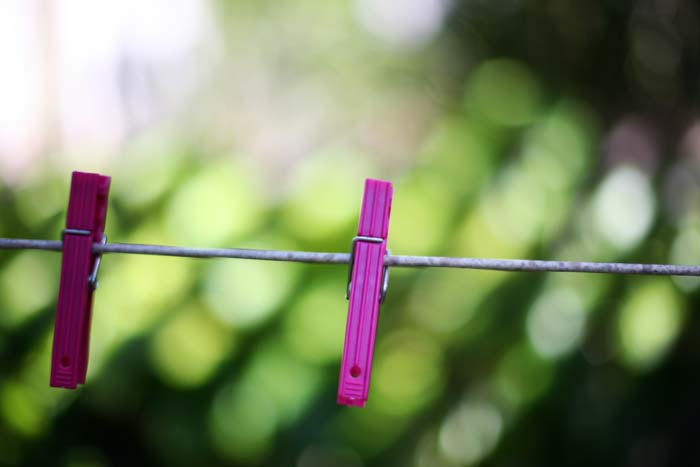
“I’m sorry, but I’m not feeling very well,” Dai said into the console.
“That’s too bad, Dai,” said the observer. “Would you like us to send up some tea?”
“Yes, please. Just leave it outside the door. Thank you.” He shut off the conversation, and turned to Kyon. “Happy?”
She coughed, and nodded. “Goddamn pachinko parlors,” she said in a rough voice. “Goddamn vectors of disease.”
Dai mounted the treadpad, and keyed in a program with his foot. “If you were feeling sick, why didn’t you see a doctor?”
Kyon gave him a look that suggested his naïveté knew no bounds. “Dai. I’m illegal. I don’t have papers. I can’t get health insurance.”
“I thought the Chongryon gave healthcare to all Northerners now.”
“They give it to Northerners who have legal reason to be here, not Northerners who betray the Glorious Leader.”
“So you don’t go to doctors?”
“No, Dai, I don’t go to doctors.” She smirked. “Why, you want to give me a physical?”
He smiled. “Were you this much of a slut for the men who smuggled you over the border? Is that why they agreed?”
He watched her lips fold down into a thin line. Her body slumped in place, and she curled up on the floor facing the television. Only a meager trickle of remorse tainted his exultance at having finally, after years of waiting, been as cruel as the world from which he had fled.
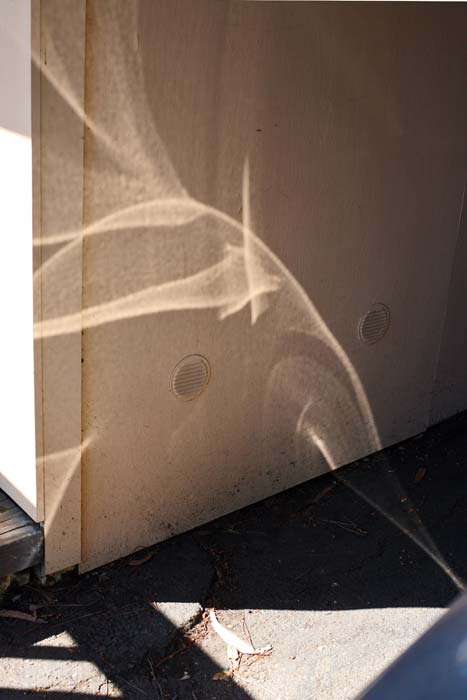
Neither of them slept very well. In the very early morning when the bathroom light flicked on and he heard Kyon cough hard and wet into the sink, he heaved a sigh and stood. She stared at the small globule of brownish-green phlegm on the white sink, and pointed. “Don’t touch the taps. I got blood on them.”
Dai looked. Tiny red speckles flecked both taps. In the mirror, he saw her wipe blood from her lips. “This should be nothing for a tough freedom-fighter like you,” he said.
“I wasn’t a freedom fighter,” she said. She sounded very tired. She knelt and retrieved some cleanser from below the sink, and liberally spritzed the area. Dai’s eyes burned, and he blinked.
“What were you instead?”
“A skeptic,” she said. She wiped the taps, ran the faucet, and they watched the phlegm disappear down the drain. “I didn’t choose to be part of the movement. It’s hard to get condoms up into the mountains, you know? I was an accident.” She coughed wetly and spat into the sink, then ran the faucet again. “Do you have any alcohol?”
“You’ve seen my fridge. You know I don’t.”
She shrugged. “I thought maybe you were hiding some. Oh well.”
She left the bathroom and Dai followed. She curled up facing the television, hands pressed between her knees. “I guess you don’t have any extra blankets, either.”
“The suit has always been enough.”
Kyon laughed, and the laugh became a cough. “Right.”
“Why don’t you go out and get some cough syrup?”
She rolled over. “And risk getting picked up by the Chongryon? No thanks. I’ll suffer. I’m tough, remember?”
As the morning grew lighter, Dai began having his doubts regarding Kyon’s toughness. Her cough persisted, and she kept going to the bathroom to spit and wash her hands. He silently vetoed any idea of sleep, and dozed until his favorite morning cooking show came on. Kyon seemed to take his command of the remote as a sign that the day had started and crawled to the fridge for some water. “I thought rice and miso soup was the traditional Japanese breakfast,” she said. “Don’t they give you anything instant?”
“High sodium,” Dai said, and chugged a protein shake.
Kyon seemed to doze during his workout. She watched the Northwest Passage feed and cooking shows, rising only to spit in the sink. When he took to the floor for his crunches, Dai noticed that Kyon shivered slightly. “I think I’ve got a fever,” she said in a croak. Her consumption of his protein shakes had only thickened her mucus, and her coughing jags now ended in gagging that Dai no longer felt certain was exaggerated.
“Have some water.”
“You don’t have any pills?”
“I’m never sick,” Dai said, pointing at the suit.
“Yeah, I’ll bet never going out helps with that,” Kyon said, and went to the fridge. When she rose he heard a rattle in her chest -- it sounded full of something very ugly. “Why don’t you just call downstairs for some cough syrup?”
“They’ll send a doctor.”
Kyon’s head withdrew. “What? Why?”
“Some of the others like to hoard medication,” Dai said. “Then they try to kill themselves.”
“With cough syrup,” Kyon said.
“I never said it was a smart method, only that some people do it. So if you ask for anything stronger than tea, you have to be seen by a doctor. Then they know if you really need the drugs or not.” Something occurred to him. “How sure are you that the Chongryon would find you, if you just left?”
“Very sure.”
“Maybe cough syrup wouldn’t even help at this point,” Dai said. “Maybe you have TB or something.”
Kyon coughed. “Dai, I know it’s no good saying this to a hikikomori like you, but you’ve really got to work on your people skills.”
“Can’t you call the man who’s supposed to pick you up and tell him to bring some medicine?”
Kyon shook her head. “It doesn’t work that way. He’s sticking his neck out just coming here. I can’t ask for more favors.” She hugged her knees. “Besides, I threw out my mobile. I figured they might have scanned it at the pachinko parlor. So I threw it out.”
“What were you doing in a pachinko parlor anyway?”
“Supplementing my income.”
“With pachinko winnings?”
“This job doesn’t pay so well.” She stood, and slammed the refrigerator door shut. “So, really, if I want anything to help me get better, you have to go out and get it for me.”
Dai allowed himself a small laugh. “Yeah. Right. I’m going to overcome three years of standard hikikomori behavior to help the person who stunned me.”
In answer, Kyon made a point of coughing near his futon.
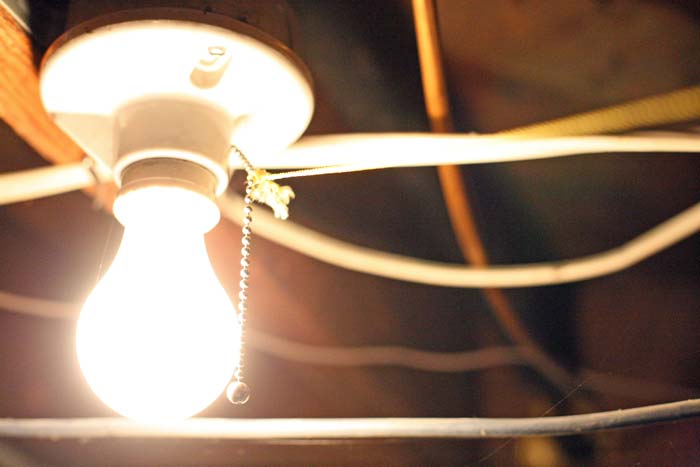
“Get up and spit it out,” Dai said days later, when Kyon was obviously uncertain about what to do with the clot of phlegm in her mouth.
She swallowed. “I can’t stand up.”
Dai frowned. “Liar.”
She shook her head. She pointed at her chest and made a fist, as though someone were constricting her bronchi.
Dai crawled over. “Come on. Didn’t you live in the mountains? Didn’t you survive the Northern winter? This is probably just pneumonia.”
For a moment, Dai thought that Kyon was merely taking her time answering. “Kyon?” She said nothing. Hesitantly, Dai reached for her forehead with his gloved hand. Despite the remarkable insulation that the suit provided, he felt heat radiate up through to his skin. “You’re burning up.”
Kyon made no answer. Dai went to the bathroom and soaked a towel in cold water. After wringing it in the sink, he covered Kyon’s head with it. She murmured a little, but said nothing. “Kyon, you’re very sick.”
She groaned, a sound that Dai took to mean: “Of course I’m sick, you moron, now help me.” It seemed like something Kyon would say. With some difficulty, he rolled her to the futon, and propped her head on his single pillow. “This is your own fault, you know.”
Kyon merely coughed. He fetched some water from the fridge. Wrinkling his nose, he pinched Kyon’s shut and poured some water down her throat. Most of it streamed away from her mouth’s two corners and pooled at her neck. She coughed again, and her eyes opened to slits.
“We…We make quite a pair,” she said.
“Don’t go getting all sentimental. You’re a big tough terrorist. There is no room in your heart for anything but the resistance.”
Kyon licked her lips. “I think I’m going to die here, Dai.”
“It’s pneumonia. You’ll survive.”
Kyon reached blindly. Her fingers flipped open a pocket somewhere on her thigh, and she brought out a wallet. “There’s money in here,” she said. “You can have it.”
“When you get better, you’ll regret having renounced all your worldly possessions.”
Her eyes closed, and her head rolled back and forth slowly. “I’m not going to get better, Dai.” She placed a bare hand over his gloved one. “I’ve got AIDS.” She swallowed. “It’s full-blown. I haven’t been on protocols since the Chongryon found me. I was using free clinics, but they only do daily dispensation.” She coughed. Instinctively, Dai flinched away. He saw her wince. “I have a lung infection. I’m going to die.”
Dai’s mouth framed the word, but Kyon said it for him. “How?” She smiled. “It’s just like you said. Sometimes in order to get what you want, you have to be kind of a slut.”
He swallowed hard. “Do you know who it was?”
“I have an idea. He died later on. He had food. I didn’t. I was a kid.”
“When did you…?”
“I was diagnosed up North. I heard that that man died, and I got scared. So I saw a doctor. He didn’t know I was a partisan. After the diagnosis, he wanted me to go to a special hospital. But I knew what that meant, so I didn’t go. I left the country instead.”
“What did it mean? What’s so bad about a special hospital?”
Slowly, Kyon drew a finger across her throat. “The North doesn’t have the money to keep itself alive, much less people with the disease.”
Dai rolled over and watched the ceiling. Dawn had broken over Tokyo, and his sister’s urn stood against his single small window. “Why didn’t you tell me?”
“I thought you’d throw me out.” She coughed. “Not that it matters, now. I’d rather you just report me, I think. A few days ago I thought I had this master plan. I thought that I could just wait it out. But I was stupid. So maybe if you just have them take me away, I’ll get to a hospital. And then later, when I’m better, I can escape or something before they deport me.”
His eyes narrowed on the door. “I haven’t left this place for three years.”
“I know.”
“But if I stay here, you’ll die.”
“Slowly. It might be better if you just got me some barbiturates and a little booze. That would speed things up.”
“Shut up, Kyon.”
“Yes sir.”
Dai stared at the door. He tried imagining himself going through it. He had no clue where the elevator was. And presuming he could even leave the building before his old fears set in, he couldn’t remember anything about the surrounding neighborhood. He had seen his building’s exterior only once, when he moved inside. He didn’t even know the closest subway stop. The sense of complete helplessness that not knowing his own neighborhood gave him made him want to hide under a blanket until the whole Kyon problem went away.
“Dai, it’s not that big a deal,” she was saying. “I’m pretty useless. And I’m pretty selfish, too. I wasn’t a good partisan, and I’ve been a total bitch to you thus far. I mean, so many people yearn for something to make their life meaningful. I had it, and I ran away from it. So maybe it’s not that bad, you know?”
Dai’s vision had blurred. He said: “Just a minute ago, you were talking about going to a hospital and escaping once they made you better.”
“Feverish delirium. I’m sick of all this running. Animals go away to die, you know. They find some dark, quiet spot and they just wait. I should do the same.”
Dai knew some things about himself that he liked. He prided himself on being a good worker, on not being sluggish. He prided himself on being able to talk to rental sisters and tailors and the people on the other side of the console. Others clammed up. He could do the small things the other recluses found impossible.
He also knew, without a doubt, that if Kyon died in this room he would go absolutely, positively padded-cell insane, and there would be no recovery.
“Kyon,” he said. “Do me a favor.”
“Sure thing,” she said. She coughed deeply. “The next time I’m up. Right.”
“Wash my suit.”
“Huh?”
“I said to wash this thing.” He reached around for the zipper. “I think it’s really dirty.”
He could have sworn he heard each plastic tooth on the zipper unclench as he pulled the zip down. He hated taking his suit off. But it would brand him hikikomori. He’d heard of the kind of harassment they suffered on the outside. So he closed his eyes as the suit gradually sloughed away toward the floor. The usual weight on his shoulders and chest lifted, and his lungs sucked great gulps of air.
“How does it feel?”
He didn’t answer. Instead, he stood shakily and kicked off each leg of the suit. Finally he kicked it to the opposite corner of the room, and stood looking at it for a moment. “You ever play that game where you put your hands up against a doorframe and press as hard as you can?”
“Yeah,” Kyon said. “Then when you stop pressing, your hands feel like they’re going to float.”
“My sister really liked that one.” He looked at his hands. His nails were girlishly long.
“You should go have a look at yourself, Dai. I’ll bet you’re a lot bigger than you remember.”
He shook his head. “No. I don’t need to see myself. I’ll just put some other clothes on, and be on my way.” He pulled an old shirt on. It stretched absurdly tight across his chest. “Um…”
“See? I told you.” She coughed. “God help the Chongryon if they mess with you. You could break them in half.”
Dai recognized this as a bid to bolster his confidence, and shook his head. “I’m not very good at fighting. Where’s the nearest subway stop?”
She told him, and gave him the address of the nearest 24-hour free clinic. She told him what to say. “They get a lot of salarymen on the way home from work,” she said. “You’ll have to wait in line.”
“Salarymen?”
“Hey, they get AIDS too. That’s why they have the free clinics now. Lots of people want anonymous care.”
“Things aren’t any better since I was last outside, I see.”
“Not really.”
For a moment he stood looking at her. Fear narrowed her eyes –- she expected him not to go through with it. He cast one look at his sister’s urn, and wondered if his petty cowardice, which might have kept his sister alive if she’d possessed any of it, might in fact kill Kyon where she lay. He decided not to find out.

Dai’s shirt stuck to his back while he stood in line with the afflicted men at the free clinic. They wore dark suits and thin ties. They shuffled in unison. He stood out, but their eyes avoided him. They herded sheep-like up to the nurse’s station. The nurse wore a pale pink outfit and a little cap. Her hair was dyed auburn. She held out a blister pack with multi-colored pills.
“You forgot your suit today, I see,” she said, and he realized she had mistaken him for another of the AIDS carriers surrounding him. Relief cracked over him like dawn.
“Yes,” he said. He turned away, and walked down the line of suits and downcast faces and knew he would return tomorrow. He emerged onto the city street. Suddenly, as though seeing them for the first time, he watched the suits appear: salarymen and high school students in shirts and ties, garbage men and police, and even nurses in their cute little outfits. Each of them engaged in one futile pursuit or another: education, advancement, the war. They congealed into one costumed mass thronging the streets of Tokyo. He thought of his sister standing in uniform, and the empty suit he’d left behind. Smiling, he turned against the flow of traffic and considered the lost cause waiting for him at home.
About the Author
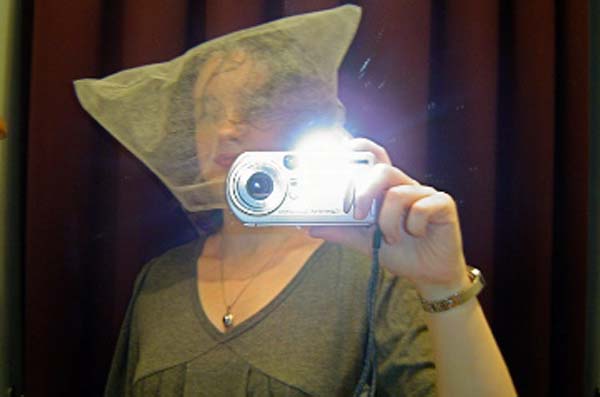
Post a comment on this story!